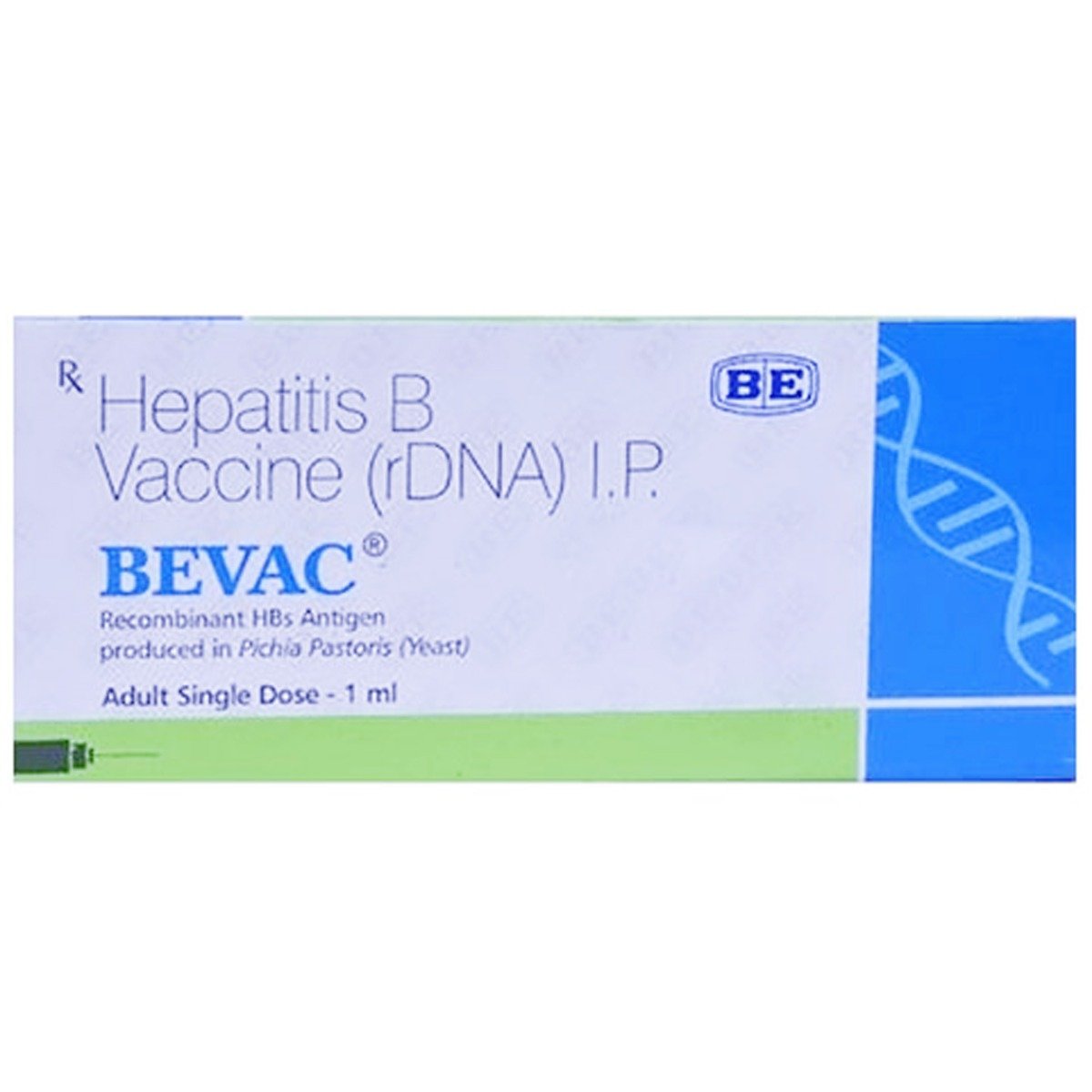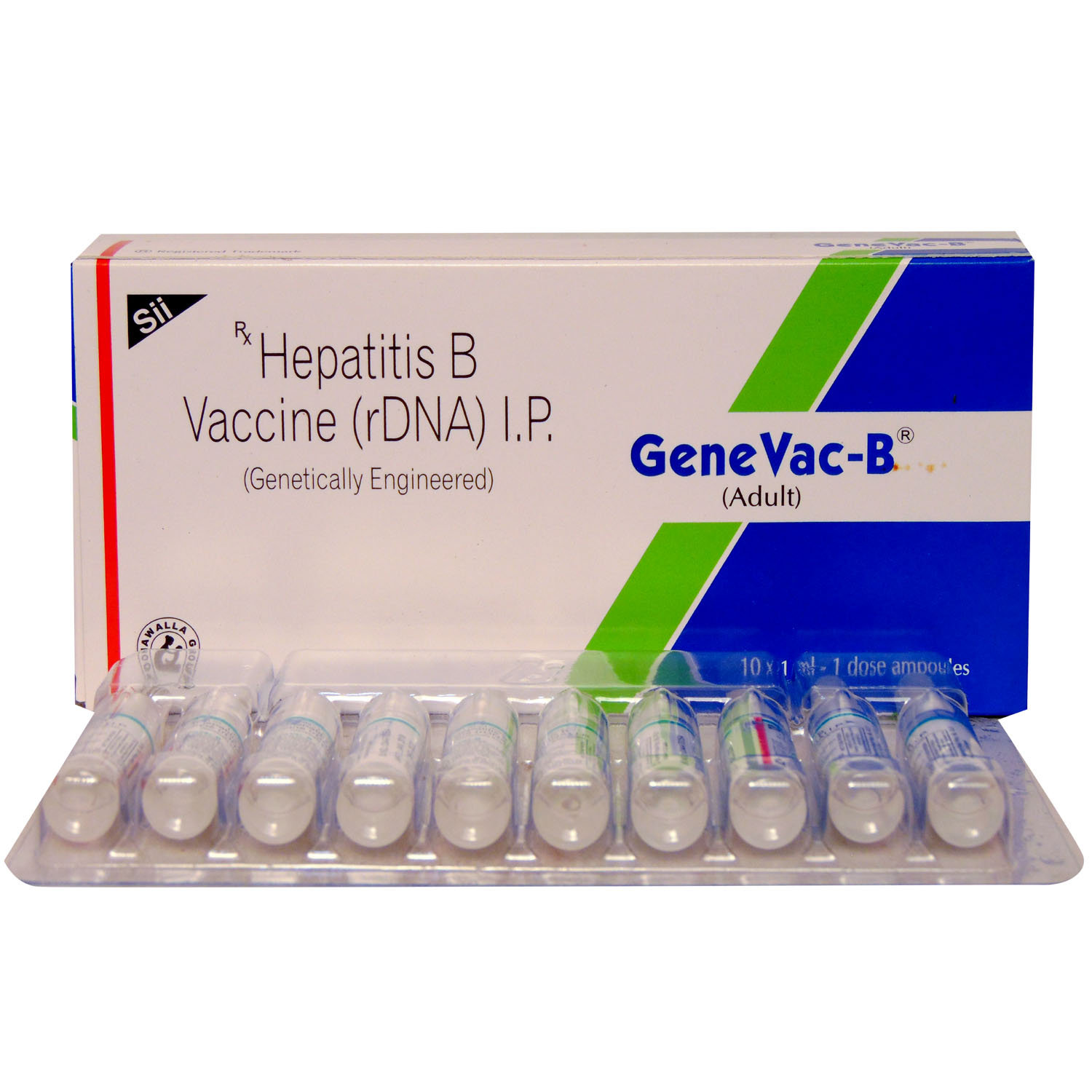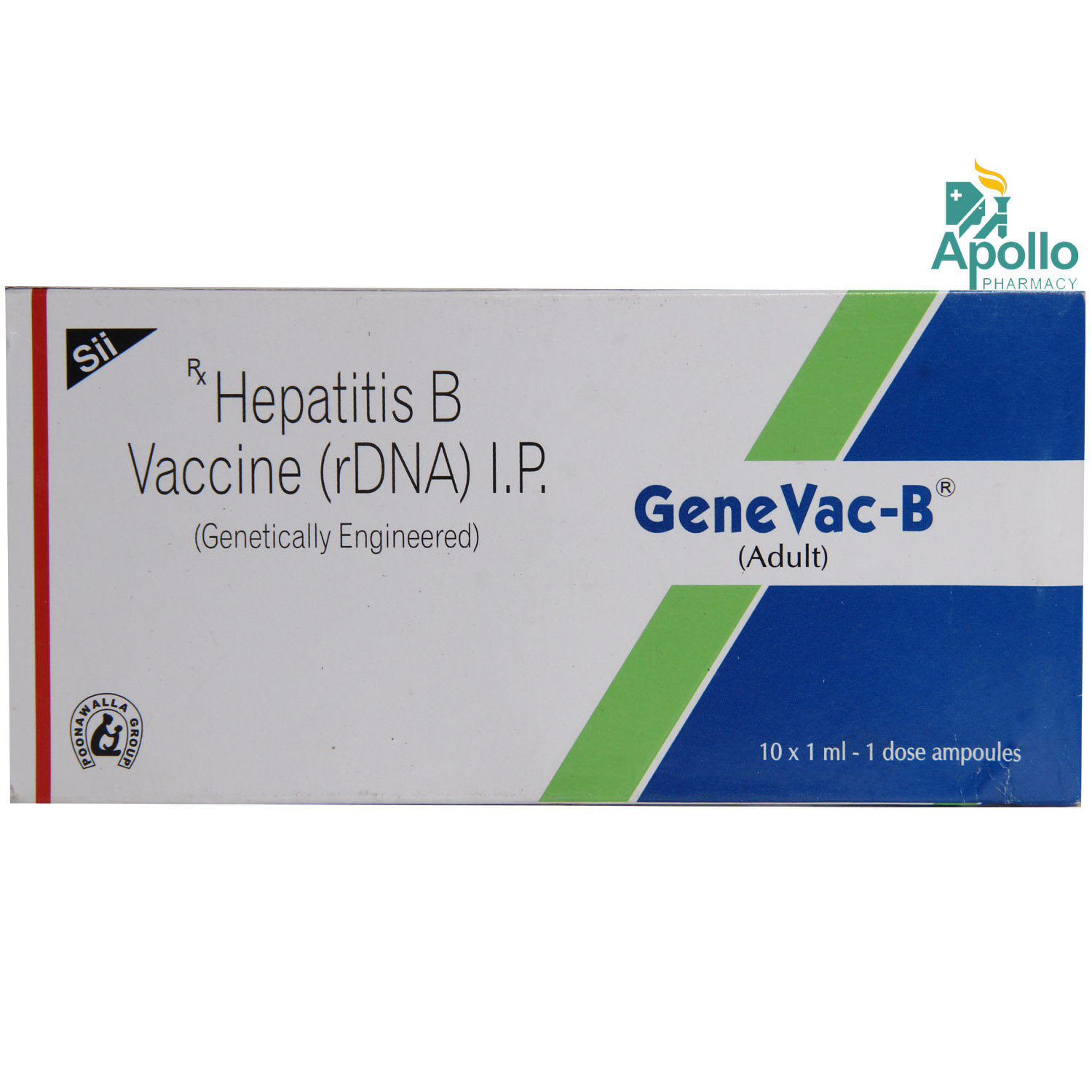Hepatitis B Immunoglobulin
About Hepatitis B Immunoglobulin
Hepatitis B Immunoglobulin belongs to the class of medication called 'biologics vaccines' or 'immunizing agents' used to prevent hepatitis B virus post-exposure. Hepatitis B is a liver infection caused by the hepatitis B virus (HBV). It is given if you have not had previous vaccination, are not properly vaccinated for hepatitis B virus, are vaccinated but ineffective and are at risk of infection. It is also used to prevent infection in infants who are born to a hepatitis-positive mother.
Hepatitis B Immunoglobulin contains ‘hepatitis B immunoglobulin’ an antibody extracted from the plasma of the infected donor that acts against the hepatitis B virus (HBV). It does not provide long-term protection against hepatitis B infection. Hepatitis B Immunoglobulin is not effective in HBs antigen-positive people (infected with the hepatitis B virus).
Hepatitis B Immunoglobulin may cause some common side-effects like swelling (oedema), redness, itching, bruising or hardening of the skin at the site of injection, low blood pressure, headache, dizziness, fast heart rate, being sick (vomiting), feeling sick (nausea), joint pains, back pain, fever, tiredness, and chills. Inform your doctor if any of these side effects persist or get worsen.
Do not take Hepatitis B Immunoglobulin if you are allergic to human hepatitis B immunoglobulin or any other biological antiviral vaccines or have received immunoglobulin A but had an allergic reaction and were diagnosed with any blood disorders. Before taking Hepatitis B Immunoglobulin, inform your doctor if you are taking any prescription or non-prescription medicines. Also, inform your doctor if you are pregnant or breastfeeding.
Uses of Hepatitis B Immunoglobulin
Medicinal Benefits
Hepatitis B Immunoglobulin contains antibodies that act against the hepatitis B virus (HBV) made from the human plasma of the donor infected person. It contains proteins (immunoglobulin) that help neutralize the hepatitis B virus. It is given to prevent hepatitis B in people who are undergoing liver transplantation, in babies born to mothers with hepatitis B, in people who are exposed to infected blood products, in people who had sexual contact with an infected person, and in people who are living with an infected person. It provokes the immune system to produce antibodies against the hepatitis B virus, which damages the liver. Hepatitis B Immunoglobulin offers protection against the hepatitis B virus for 3-6 months.
Directions for Use
Storage
Side Effects of Hepatitis B Immunoglobulin
- Swelling (oedema), redness, itching, bruising or hardening of the skin at the site of injection
- Low blood pressure (hypotension)
- Headache
- Dizziness
- Fast heart rate
- Being sick (vomiting)
- Feeling sick (nausea)
- Joint pains
- Back pain
- Fever
- Tiredness
- Chills
Drug Warnings
Before taking Hepatitis B Immunoglobulin, inform your doctor if you know that you have enough IgA antibodies (act against hepatitis A), have previously been diagnosed with hypertension (high blood pressure), diabetes, blood clots, blood-related disorder, or heart disease, had vaccinations or planning to get vaccinated. Inform your doctor even if you just feel unwell after taking Hepatitis B Immunoglobulin. Seek medical attention immediately develop pain, swelling, unusual warmth of a limb, sudden shortness of breath and chest pain worsening on deep breathing, weakness on one side, difficulty speaking, or confusion.
Drug Interactions
Drug-Drug Interaction: Hepatitis B Immunoglobulin should be used with caution in patients taking blood thinners (warfarin, heparin, and enoxaparin, etc.)birth control pills, or hormonal replacement therapy as it increases the risk of blood clots.
Drug-Food Interaction: No food interactions found.
Drug-Disease Interaction: Hepatitis B Immunoglobulin should be used with caution in patients with blood clots, blood-related disorders, heart diseases, and diabetes.
Drug-Drug Interactions Checker List:
Safety Advice

Alcohol
cautionAlcohol may increase the risk of side-effects and worsen the hepatitis B condition.

Pregnancy
cautionHepatitis B Immunoglobulin is a category C drug. It should be used with caution in pregnant women as it may toxic effects on the unborn baby.

Breast Feeding
cautionHepatitis B Immunoglobulin should be given to breastfeeding mothers only if clinically needed.

Driving
safe if prescribedHepatitis B Immunoglobulin may not affect your ability to drive.

Liver
safe if prescribedHepatitis B Immunoglobulin is used in patients with liver diseases when clinically needed.

Kidney
safe if prescribedHepatitis B Immunoglobulin can be safely used in patients with kidney diseases if prescribed.

Children
safe if prescribedHepatitis B Immunoglobulin can be used in children below 12 years of age if clinically needed.
Habit Forming
Diet & Lifestyle Advise
- Consume a balanced diet. Talk to a dietitian and prepare a diet plan.
- Avoid fatty foods and raw or undercooked foods.
- Avoid alcohol intake.
- Maintain a healthy weight.
- Undergo screening for hepatitis if you are caring or living with an infected person.
- If you are diabetic, do not share your blood sugar meters, blood lancets, or other equipment with other persons as it may cause the spread of infection from one person to another.
Special Advise
- The Hepatitis B Immunoglobulin may interfere with the working of vaccines against MMR (measles, mumps, and rubella) and varicella (chickenpox) vaccines. It is recommended to inform your doctor if Hepatitis B Immunoglobulin is given within 3 months after taking these vaccines. The doctor may advise you to take another dose of these vaccines after 3 months following Hepatitis B Immunoglobulin administration.
- Inform your doctor if you have any blood tests after taking Hepatitis B Immunoglobulin, as this medicine may alter the blood test results.
- An individual adult should take Hepatitis B Immunoglobulin preferably less than 24 hours after exposure but no later than 7 days after exposure to hepatitis B. For persons who refused to take Hepatitis B Immunoglobulin if found hepatitis positive, a second dose of Hepatitis B Immunoglobulin should be given 1 month after the first dose.
Patients Concern
Disease/Condition Glossary
Hepatitis B: It is a severe and chronic (long-term) liver infection caused by the hepatitis B virus (HBV). It can be prevented by effective vaccination. It spreads by contact with infected blood, semen, or other body fluids. The symptoms of this condition are abdominal pain, dark urine, and yellowing of the eyes.
FAQs
Hepatitis B Immunoglobulin contains 'hepatitis B immunoglobulin' used to prevent hepatitis B infection (affects the liver). It works by neutralizing the hepatitis B virus by provoking an individual's immune system through cell-mediated immunity.
Do not take live vaccines such as MMR (measles, mumps, and rubella), typhoid, yellow fever, varicella (chickenpox), and zoster (shingles) vaccine while taking Hepatitis B Immunoglobulin or for 3 months after taking Hepatitis B Immunoglobulin. This medicine may alter the action of these vaccines.
It is given to people undergoing liver transplantation, who are exposed to infected blood products, who had sexual contact with an infected person, who are living with an infected person, or who are caring for an infected person. It is also given in babies born to mothers with hepatitis B.
The hepatitis B vaccine stimulates the immune system to produce antibodies against the hepatitis B virus (HBV) and also it provides long-term protection against the virus. On the other hand, hepatitis B immunoglobulin contains antibodies that act against HBV and it is given when immediate protection against the virus is needed.









